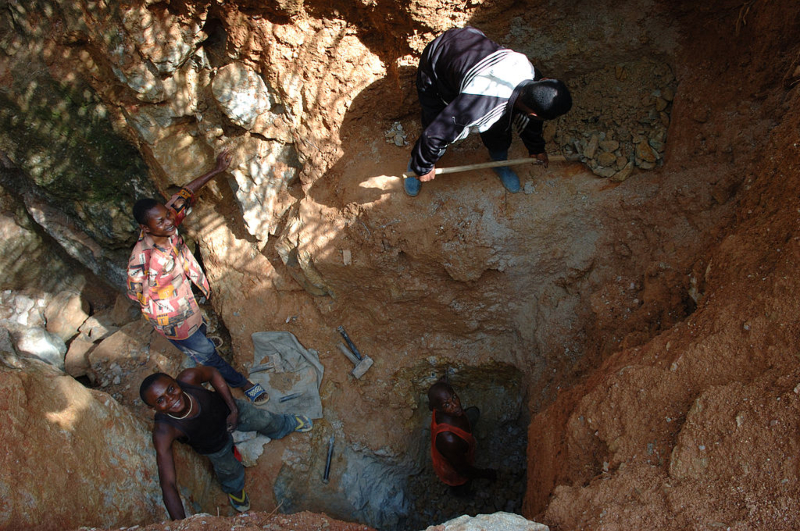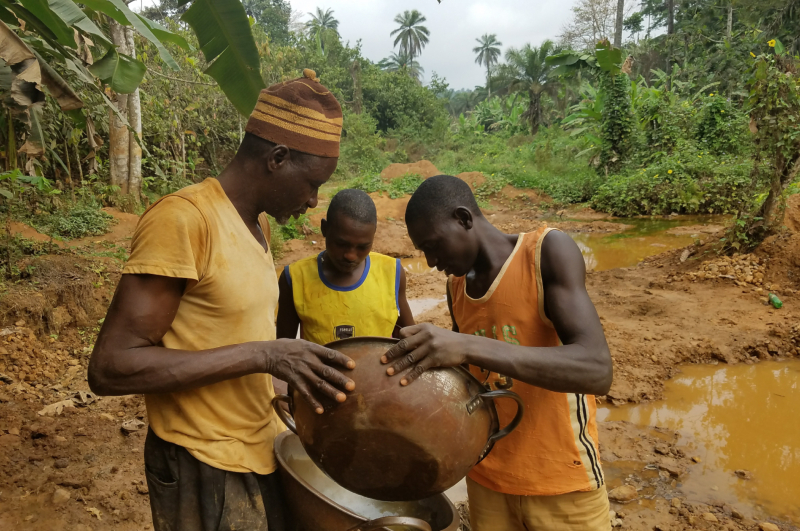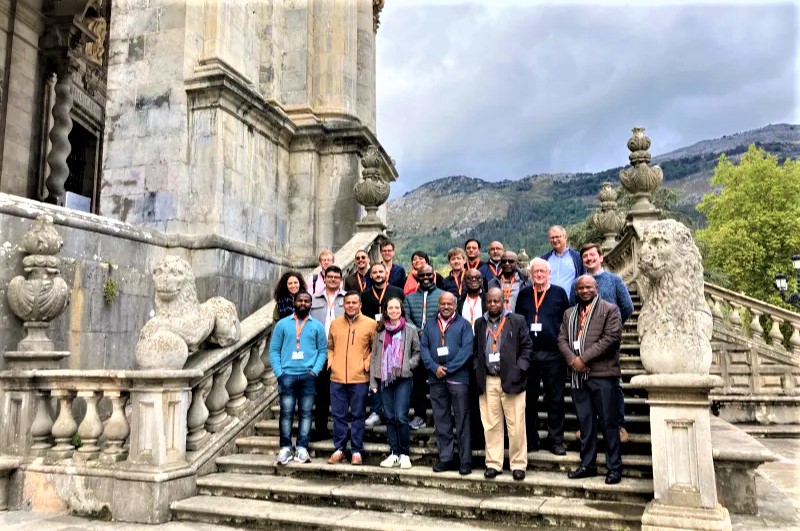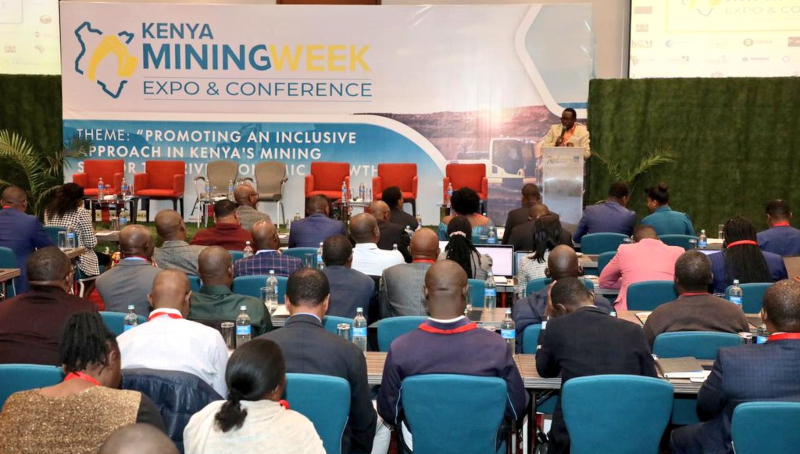

The vast mineral resource endowment of the Democratic Republic of Congo (DRC) at a glance, projects to the country’s potential to achieve a shared prosperity and economic growth.
With that abundance in the mineral endowment, the country considers extractives as a major driver of its economic growth with copper and cobalt accounting for 80 % of the country’s export. Compounded with DRC’s narrow tax revenue base, the focus on revenues from the extractive industry to finance government operations and provision of basic services have equally not yielded much for the country as corruption has taken center-stage, leading to only a small proportion of taxes and royalty going to the government coffers.
Geopolitically, DRC is surrounded by equally politically unstable countries such as the Central African Republic, Rwanda, and Sudan. Having politically unstable countries as neighbors for a country riddled with conflicts, DRC faces a precarious situation in managing its borders. With cases of cross-border raids, spill-overs from ethnic insurgencies, and fights among local rivals, the insecurity situation in the country has gone wayward, leaving residents to seek protection from warlords and rebels. After several decades of war, 2003 ought to have been a significant year for the country, but even after the end of the Congo wars, the post-conflict DRC has remained very volatile with endemic conflicts within the country’s Great Lakes Region.
Mining accounts for nearly 25% of DRC’s GDP. The World Bank reports that DRC holds half of the world’s cobalt reserves but despite massive mineral deposits, the socioeconomic situation in the country still remains low. For instance, according to the World Bank report, as of 2020, the poverty level stood at 73%, 27 million people remain food insecure, and over 5.2 million have been displaced by the conflicts. A major cause of this deteriorating socioeconomic condition has been attributed to weak governance. Weak governance implies that conflict and violence, and pervasive go unabated. Multinational corporations have also exploited weak governance structures to extract unsustainably and exploit human labor. Existing extraction models coupled with weak governance of extractive resources are not only a recluse of DRC, other African mining industries fall short as well. Further, the development challenges also result in the country’s weak human capital.
The forest ecosystem of the tropical forests of the DRC Congo is important to the livelihood of residents. About 67% of the country lies in forests. But the provisioning services from the forest ecosystem appears as a curse to the people. Studies have unearthed a complex relationship between conflict and forest conservation. Some of the direct impacts include road building, defoliation, and unsustainable use of forest resources while indirect impacts include reduced economic activity, reduction in forest cover loss, and changes in discount rates for forest resources. Given the hope put on the extractive industry such as forests to support economic growth and development of the country, the weakness that has characterized the mining sector has its spillover effects, negatively affecting the forests ecosystem that supports the majority of poor and indigenous forest communities in the country. Mining is also often associated with environmental degradation and disruption of ecosystems which carries with it negative social impact and uncertainties. That affects the quality of life for the immediate community in the mining region as well as the entire region, further exacerbated by the rising impact of global climate change. Most African societies are not climate resilient, and mining countries are particularly more vulnerable due to the already ongoing environmental degradation.
Apart from the protracted conflicts and environmental degradation, mining has established a rush migratory pattern, where low-income families rush to the mining areas in search of work. Worse, those who migrate to the mining sites end up undertaking small-scale artisanal mining using harmful extraction methods that equally threaten the health of the miners. Further, these mining sites have become a threat to the human development of children due to the rampant use of child labor in the sites. One of the driving factors to children's engagement in the mines is high levels of poverty where children also participate in income generation for their families.
Jesuit Justice and Ecology Network Africa (JENA) has been driving the agenda on Rethinking Africa's Development with a focus on making mining work for Africa. In 2022 JENA was involved in various regional and international dialogues with its partners and those in the policy space in a meeting in Lubumbashi, DRC, and Spain. Key among the discussions included the need to strengthen governance structures and inclusion in technology-rich mineral countries like DRC to utilize its natural resources to benefit its people. There is a need to demand justice in models used for extraction as the traditional colonial models are not inclusive nor sustainable and they perpetuate a lot of human rights and environmental abuse while neglecting their duty to local communities within the mining areas. Public participation coupled with transparent partnership can create room for inclusive measures that reduce gaps that tend to lead to conflict and violence.
Further, the adoption of the World Bank’s proposal among other solutions for developing alternative livelihood programs that can absorb the excess artisanal workforce is very critical. For the artisanal workforce, much needs to be done to improve the enforcement of labor, health, safety, and environmental standards. Through public-private partnerships, specialized mines inspection units can be established that also tracks the transport and commercialization of mineral deposits produced by the artisans. In resolving the protracted crisis in the mines, several solutions such as corporate social responsibility through public-private collaboration have been proposed. The plank of the proposal rests in the argument that even after the 2002 peace agreement in the mines had been struck, the mining environment is still fragile, necessitating the actors to work towards achieving coherent social and economic strategies to the benefit of the population. Given the wide social and environmental issues at stake, effective implementation of programs targeting the local communities is a function of coordination and collaboration between the government and private institutions to enhance the government’s capacity for the regulatory and monitoring role. The importance of pushing the private actors to active roles engenders corporate self-regulation given DRC’s weak governance and limited ability to enforce mining regulations. Despite corporate self-regulation being an individual corporate initiative, the promotion of public-private partnerships seeks to ensure uniformity and standard operational guidelines among the actors for achieving common social and developmental agenda.
Related Articles


Select Payment Method
Pay by bank transfer
If you wish to make a donation by direct bank transfer please contact Fr Paul Hamill SJ treasurer@jesuits.africa. Fr Paul will get in touch with you about the best method of transfer for you and share account details with you. Donations can be one-off gifts or of any frequency; for example, you might wish to become a regular monthly donor of small amounts; that sort of reliable income can allow for very welcome forward planning in the development of the Society’s works in Africa and Madagascar.
Often it is easier to send a donation to an office within your own country and Fr Paul can advise on how that might be done. In some countries this kind of giving can also be recognised for tax relief and the necessary receipts will be issued.


